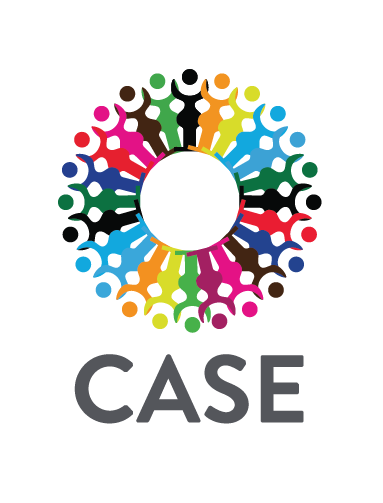Exploring Drummondville’s Anglophone Roots: A Personal Journey
This text is based on a conversation with Barry Husk, co-author with Nick Fonda of Voice Lost in Time: The Anglophone Legacy of a Small Quebec City. The book explores the rich and often overlooked history of Drummondville’s Anglophone community and its lasting influence on the region. The interview was written by Eleonore Guité, Culture & Heritage Coordinator of CASE-MCQ.
Meet Barry Husk and fellow co-author Nick Fonda at the Book Launch November 7, 6:30 pm. Click here for details and to register online! You can also pre-order the book.
_____________
My fascination with the history of Drummondville’s English-speaking community wasn’t triggered by a single story. It was more of a slow burn, something that grew over time as I became more interested in the local history of this area. This passion can be traced back to my grandparents, who co-founded the Richmond County Historical Society in the 1960s. Their work introduced me to the world of local history and book publishing, which unknowingly planted the seeds of my interest. As I gathered bits and pieces of history related to the English-speaking population of Drummondville, I eventually decided that I wanted to do something with that material. The idea of a book—or even a series of articles—started to take shape. That’s when I approached Nick Fonda, a Richmond area writer and journalist, someone I had known for a long time. After a bit of convincing, he agreed, and three years later, we have a book!
My career path has been far from linear, but in many ways, it equipped me with the tools I needed for this project. I spent 30 years as an industry manager and owner, mainly in research and development. After selling my companies, I switched gears and worked at Bishop’s University, where I helped set up their Entrepreneurship Center. Later, I co-owned a bookstore for about 12 years and even founded a small environmental research company. At the same time, I was heavily involved in the local historical society, where I eventually became president for a couple of years. These experiences—from the business world to academia—shaped my approach to research and gave me a solid foundation to dive into the historical work needed for this book.
As Nick and I collected stories, it became clear that Drummondville’s English-speaking community had made major contributions, especially in areas like education, the arts, and industry. Yet, much of that history had been overlooked, likely because the community was always in the minority. Realizing how much had been forgotten motivated us to write the book. In the end, we focused on 36 individuals, but we easily could have featured 100 more. Deciding who to include was tough, but we wanted to highlight a wide range of contributions.
Even though our book is non-fiction, we didn’t want it to feel like an academic text. We wanted it to be accessible and engaging for a general audience, so we decided against including references at the end of each chapter. If anyone is interested in the sources, we have them all available, but we didn’t want the book to be weighed down by too much formality.
When it came to dividing the work, Nick and I each had our roles. I did most of the research, and Nick took on the bulk of the writing. I contributed by writing a few chapters, and we made sure to have many people review the book to ensure both grammatical and historical accuracy.
Researching the book revealed many unexpected details. One of the most surprising finds was about Major Heriot, the founder of Drummondville. I learned that he was a horseman before coming here, a detail that hadn’t been discussed before. We also discovered personal stories about his life—he almost got married but didn’t, and it seems that living in such a remote location may have played a role in that decision.
If I could meet one of the historical figures from our book, it would be Isaac Cutter, a stagecoach operator. He ran a route between Quebec City and Montreal, eventually extending through the Eastern Townships. I imagine he’d have some incredible stories from his 30 years on the road, navigating through all kinds of weather and conditions.
If we were to put together an exhibit on the English-speaking community, one key artifact I’d choose would be a time capsule we retrieved from the high school before it was demolished. It contained memorabilia from the school’s founding in 1948 and felt like a direct connection to the past. I’d also include something to represent the Jewish community, which we wrote about in the book. At one time, there were about 50 Jewish families living in Drummondville, but much of their history had never been documented until now.
Working on this book has made me feel a sense of responsibility. Many of these stories could have been lost forever if we didn’t take the time to document them. It’s crucial to make sure the contributions of the English-speaking community in Drummondville are remembered, especially as the community continues to shrink.
There will be a book launch on November 7th at 6:30 PM. Get your tickets here—space is limited!


